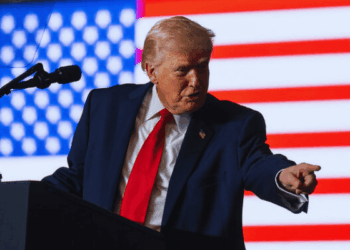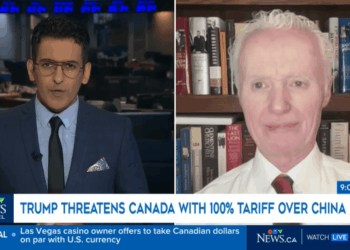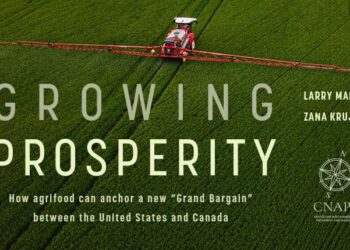This article originally appeared in The Hill.
By Alan Kessel, August 11, 2025
The geopolitics of the Middle East is shifting quickly, and not for the better. What began as a solo act of French diplomatic theatre has now become a chorus of ill-considered posturing.
Within weeks of Emmanuel Macron’s declaration that France will recognize a Palestinian state in September, the United Kingdom and Canada have each signaled that they are considering following suit, albeit in their own ways.
This is not a movement toward peace. It is a movement toward rewarding terror, undermining international law and weakening the leverage needed to resolve this conflict responsibly.
Palestinian self-determination is a legitimate aspiration, but recognition of statehood is not a symbolic gesture to be handed out of impatience. It is a formal legal act with irreversible consequences.
Under the Montevideo Convention of 1933, statehood requires a permanent population, defined territory, a functioning government and the capacity to enter into relations with other states. None of these elements exist in any coherent form today.
The Palestinian Authority barely controls parts of the West Bank, while Hamas, a designated terrorist organization by Canada, the U.K., the European Union and the U.S., controls Gaza with violence and impunity. To call this a “state” is to willfully ignore both law and reality.
The timing could not be more reckless. Recognition now will be read by Hamas as vindication of its Oct. 7 massacre. It will embolden the group, harden its demands and make the already fragile hostage negotiations even more perilous.
Those remaining captives, innocent people torn from their homes, are being used as bargaining chips. To reward their kidnappers with the trappings of statehood sends the worst possible signal: that terrorism works.
Macron has dressed up his move in high-minded rhetoric, declaring: “Consistent with its historic commitment to a just and sustainable peace in the Middle East, I have decided that France will recognize the state of Palestine.”
“Peace is possible,” he added”
But the act is not a nudge toward peace; it is a shove into deeper instability. It legitimizes dysfunction, undermines negotiation and risks solidifying Hamas as the obstacle that must be removed before any true progress is possible.
The double standard is glaring. The EU, including France and the U.K., has been steadfast in refusing to recognize Russia’s illegal territorial seizures in Donetsk and Luhansk. Their reasoning? Gains achieved through violence, by a genocidal autocrat against a sovereign democracy, are inadmissible under international law.
Yet here, after the most brutal single-day massacre of Jews since the Holocaust, they are prepared to reward Hamas with the very prize that violence seeks to achieve: international recognition. If the goal is to “stop the bloodshed,” why is the principle applied in Ukraine abandoned in Gaza?
The U.K.’s pressure comes not from national interest but from the politics of its leftist Labour government, which is trying to appease its radical base. Canada’s drift in the same direction appears driven by a similar impulse to keep pace with European “moral” posturing, even at the cost of substance.
But recognition is not a throwaway gesture. Once granted, it is almost impossible to reverse. It will reshape diplomatic assumptions, embolden rejectionists and leave the region to pay the price long after the cameras move on.
Macron, and those now tempted to follow him, may fancy themselves peacemakers. In truth, they are lighting matches near a powder keg. They risk calcifying the conflict, encouraging extremism, and turning international law into a political prop.
Recognition without the preconditions of real statehood is not a shortcut to peace, it is a long road to unintended, irreversible damage.
And coming from France, a country that, together with Britain, helped draw the post-Ottoman borders that sowed a century of Middle Eastern instability, this sudden rush to redraw the map by fiat is not just misguided. It’s rich.
Alan Kessel is a senior fellow at the Macdonald Laurier Institute’s Center for North American Prosperity and Security in Washington, D.C., and a former legal adviser to the government of Canada and deputy high commissioner of Canada to the United Kingdom.








